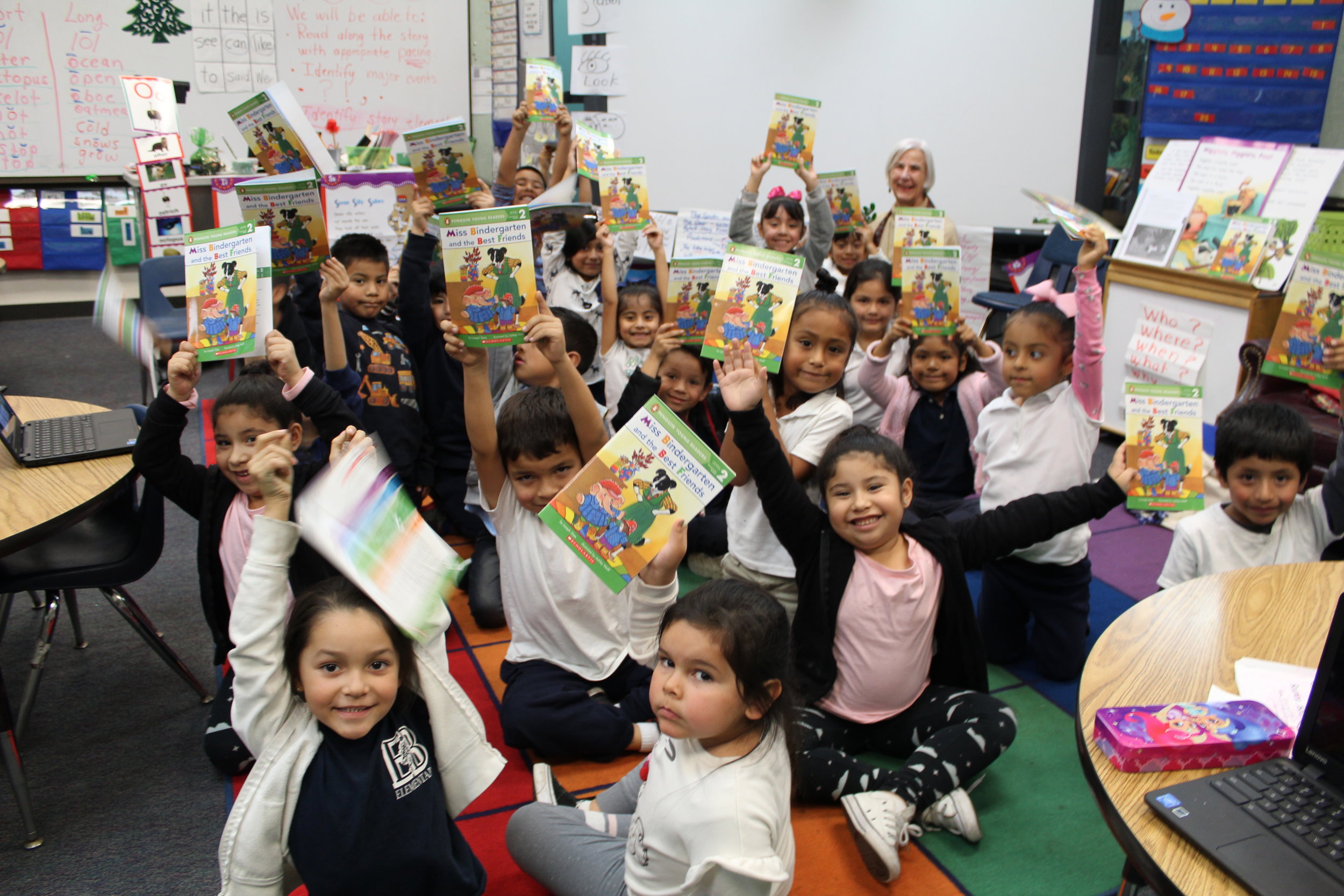By Tait Longhi, Blog Intern
An image of a group of students in our Read Aloud Program excitedly holding up their books.
There are countless reasons why two strangers may connect, but one common reason that has connected all ages is the commonality of stories. As a child, when you discover that your classmate loves the same book series as you, an immediate conversation ensues. Being able to talk about characters, what they think will happen next and why they love the book as much as you do creates a bond.
This doesn’t go away with childhood, if anything it intensifies. Reading doesn’t only builds friendships, but entire communities. Words Alive, organizations like the Harry Potter Alliance (HPA), GoodReads or just a classic book club are just a few examples of how the power of reading can bring people together. It may be the fact that every person reading the pages will take a different lesson or viewpoint than the next, and we as humans desire to know and understand one another through these insights.
Books also teach us life lessons that inspire us to do something good for our community. Organizations like the Harry Potter Alliance were founded out of a love for the Harry Potter series and have created a whole community of activists who are using popular stories to change the world. John and Hank Green are brothers (and both authors) who have fostered an online community called Nerdfighteria, a community that celebrates many things but chief among them is a love for books and learning. With the internet, it’s easier than ever to find and form communities around a love of books.
According to the journal, “Using Parent Book Clubs to Build a School-Wide Reading Community”, a high school class partook in reading aloud throughout the year. This allowed students to “engage in meaningful relationships and social interactions tied to reading, and these connections mattered to them. Students took these connections seriously, and they authentically acted in ways to contribute positively to the reading community.” Here, we can see what one could call book club within the classroom.
The importance in these communities may seem obvious, but there is more than just reading aloud and discussing books. Organizations like Words Alive understand that communities that value reading help build thriving and intellectual individuals and relationships among one another.
Reading, literacy and all it brings is a powerful thing, which is why we at Words Alive are here. Through the passion of reading we have come together to show the importance and positive impact it can make on others. While reading is often done in solidarity, it has the unique ability to bring a huge group together, to understand and bond with one another.












